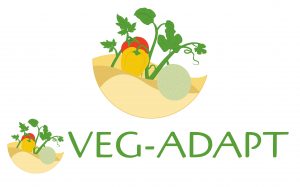Active Research Projects
 «TRUE: TRansition paths to sUstainable legume based systems in Europe»
«TRUE: TRansition paths to sUstainable legume based systems in Europe»
The project “TRansition paths to sUstainable legume based systems in Europe” is a balanced practice-research partnership of 24 institutions, which aims to identify the best routes, or “transition paths” to increase sustainable legume cultivation and consumption across Europe.Sophisticated status quo analysis and advanced modelling approaches combined with data generated from 24 Case Studies and transdisciplinary knowledge-exchange will lead to concrete innovations and to a final Decision Support Tool for primary producers, agronomists, processors, associated businesses and decision makers to help determine a range of options for successful transitions that include a variety of legume species and processing approaches to match the pedo-climatic zones and farm network types.Legume Innovation Networks are being formed in three different pedoclimatic regions across Europe, which are: ‘Atlantic’, ‘Continental’ and ‘Mediterranean’.
AUA is the WP2 leader.
Work Package 2 aims to determine and demonstrate the factors that contribute to successful transitions using a network of stakeholders among farming, food producers and consumers. Methods include characterisation of food and feed chain networks through a set of 24 Case Studies, forming Legume Innovation Networks covering Europe’s pedo-climatic zones. Most effective transition paths will be identified to derive principles for wider application.
For more information about the contribution of the Laboratory of Vegetable Production to this project, Click Read more
This project has received funding from the European Union’s Horizon2020
research and innovation programme under GA N° 727973![]()
TOMRES: A novel and integrated approach to increase multiple and combined stress tolerance in plants using tomato as a model»
Τhe overall goal of TOMRES is to enhance resilience to combined water and nutrient stress in tomato and to maximize water (WUE) and nutrient use efficiency (NUE) by designing and testing in the field (open and protected) novel combinations of genotypes and management practices reducing the environmental impact of agricultural activities.To this aim, novel below-ground traits will be identified and rootstocks and scions displaying increased WUE and NUE, while retaining fruit quality and yield, will be selected.A range of crop management strategies will be optimized, environmental (including water quality) and socio-economic impact will be assessed, and a Decision Support System built on resource efficiency analysis data will assist field testing of genotype x management practices, and transfer to farmers Multi-actor approach will be granted by farmers, advisors and farmer associations, private companies and public institutions providing complementary types of knowledge as project partners. In addition, scientific experts, companies, national farmers’ organizations and citizens interested in the topic will be engaged from the start through a Stakeholder Group, thus enabling environment for implementation and market uptake of project results.
overall goal of TOMRES is to enhance resilience to combined water and nutrient stress in tomato and to maximize water (WUE) and nutrient use efficiency (NUE) by designing and testing in the field (open and protected) novel combinations of genotypes and management practices reducing the environmental impact of agricultural activities.To this aim, novel below-ground traits will be identified and rootstocks and scions displaying increased WUE and NUE, while retaining fruit quality and yield, will be selected.A range of crop management strategies will be optimized, environmental (including water quality) and socio-economic impact will be assessed, and a Decision Support System built on resource efficiency analysis data will assist field testing of genotype x management practices, and transfer to farmers Multi-actor approach will be granted by farmers, advisors and farmer associations, private companies and public institutions providing complementary types of knowledge as project partners. In addition, scientific experts, companies, national farmers’ organizations and citizens interested in the topic will be engaged from the start through a Stakeholder Group, thus enabling environment for implementation and market uptake of project results.
To achieve the above mentioned overall goal, the work has been structured into the following interrelated objectives:
- To identify tomato lines resilient to combined stress and novel alleles/traits that confer superior water and nutrient use efficiency (WUE and NUE).
- To increase basic knowledge of the physiological and molecular processes activated in tomato by combined stress and contributing to resilience.
- To design and optimize sustainable crop management strategies inducing improvement in resilience to combined stress.
- To integrate and evaluate the effect on resource consumption and on the environment of the adoption of the genotype x crop management combinations selected for increased resilience; and to offer decision support tools for farmers and stakeholders.
- To demonstrate the technical and economic feasibility of the innovative solutions developed and to actively disseminate the project findings, thus enabling environment for implementation and uptake of project results.
- To review and assess the work carried out and the outcome of the project activities against a set of pre-determined indicators.
For more information about the contribution of the Laboratory of Vegetable Production to this project, Click Read more
This project has received funding from the European Union’s Horizon2020
research and innovation programme under GA N° 727929 ![]()
“VEGADAPT: Adapting Mediterranean vegetable crops to climate change-induced multiple stress”.
 Climate change is inducing severe limitations to vegetable crops in the Mediterranean, due to severe, often concurrent (multiple) stresses, in particular drought, heat, and salinity. VEGADAPT gathers farmers, industry, and research form eight Mediterranean countries, with the shared scope of increasing the tolerance of three major vegetable crops (tomato, pepper,and melon) to stress induced by climate change in this area. To this aim, VEG-ADAPT will follow three parallel and integrated lines of research: characterization and selection of tolerant local varieties and new hybrids, discovery of physiological processes contributing to tolerance and of the underlying genetic patterns and markers, and optimization of cropping management techniques reducing susceptibility to climate change-induced stress. The selection process will provide accessions to serve for physiological and genetic studies and to
Climate change is inducing severe limitations to vegetable crops in the Mediterranean, due to severe, often concurrent (multiple) stresses, in particular drought, heat, and salinity. VEGADAPT gathers farmers, industry, and research form eight Mediterranean countries, with the shared scope of increasing the tolerance of three major vegetable crops (tomato, pepper,and melon) to stress induced by climate change in this area. To this aim, VEG-ADAPT will follow three parallel and integrated lines of research: characterization and selection of tolerant local varieties and new hybrids, discovery of physiological processes contributing to tolerance and of the underlying genetic patterns and markers, and optimization of cropping management techniques reducing susceptibility to climate change-induced stress. The selection process will provide accessions to serve for physiological and genetic studies and to
be tested in the field; genetic and metabolic markers will help selecting genotypes; field experiments will test the performance upon stress of selected varieties, also used as rootstocks, of soil amendments, and of smart irrigation techniques. The socio-economic effect of the innovative agronomic tools and techniques developed within VEG-ADAPT will be assessed. Novel results will be disseminated and demonstrated to farmers and industry.
Transfer of the results of VEG-ADAPT to other vegetable crops will be possible, due to biological, physiological, and agronomical similarities. VEG-ADAPT will impact Mediterranean farmers, by providing ready solutions for climate change-induced cropping limitations; the industry, by offering genotypes and genetic traits to be used in breeding programmes scientists, by uncovering novel metabolic and molecular processes inducing tolerance of crops; and the society at large, by improving sustainability of vegetable crops. A multi-actor approach is embedded within VEG-ADAPT and will be supported by a dedicated Stakeholder platform.
For more information about the contribution of the Laboratory of Vegetable Production to this project, Click Read more
 PlantUP Research Infrastructure is an infrastructure of excellence that focuses on systematically recording, preserving, protecting and exploiting the wealth of Greek plant biodiversity. The individual actions of implementing the PlantUP Infrastructure promote basic and applied research with the ultimate recipient of the human being. PlantUP includes the rational and uniform reinforcement of the existing recipient infrastructure at national level, aiming at the sustainable exploitation of plant biodiversity through the creation of high added value products. Highly qualified experts in botanical, agronomic, chemical, and natural product technology, genetics, analytical chemistry and plant protection are joining forces to build this infrastructure.
PlantUP Research Infrastructure is an infrastructure of excellence that focuses on systematically recording, preserving, protecting and exploiting the wealth of Greek plant biodiversity. The individual actions of implementing the PlantUP Infrastructure promote basic and applied research with the ultimate recipient of the human being. PlantUP includes the rational and uniform reinforcement of the existing recipient infrastructure at national level, aiming at the sustainable exploitation of plant biodiversity through the creation of high added value products. Highly qualified experts in botanical, agronomic, chemical, and natural product technology, genetics, analytical chemistry and plant protection are joining forces to build this infrastructure.
For more information about the contribution of the Laboratory of Vegetable Production to this project, Click Read more
Nutrisense Development of an innovative technology using special ion electrodes and suitable software for hydroponic production with emphasis on recycling of the drainage solution in closed systems 
Nutrisense aims to cover the existing gap of knowledge in the international and Greek bibliography regarding optimal uptake ratios. At the same time, research results will be obtained on the suitability of decontamination methods which do not leave residues in plants (O3 and H2O2 decompose in harmless O2) to control pathogens in the recycled DS, focusing mainly on dosages and application techniques, as well as on the safety of the produced vegetables. The technology for automatic measurement of nutrient ions in solutions using ISE and the NUTRISENSE SW are pioneering techniques for Mediterranean countries and especially for Greece, as such technologies have so far only been tested in North-Europe A core task in the proposed research program is the development of a novel software for hydroponic crops and especially for closed hydroponic systems which enables proper recycling of the drainage effluents (DS), thereby contributing to considerable savings of water and fertilizers and reduced contamination of water resources by nitrates.
Socially the dissemination activities are anticipated to increase the general level of know-how in the sector of hydroponic industry. As a result, higher productivity and competitiveness, reduced pesticide use and better product quality can be achieved in the sector of greenhouse vegetable production, which is very dynamic in Greece due to the favorable climatic conditions. The activities planned within the framework of NUTRISENSE include the development of the project platform as a part of the AUA website, media campaign (social media accounts, press releases), organization of four open workshops at four local communities in different regions of Greece and several smaller-scale dissemination activities. These activities will be very helpful to local communities in which the greenhouse production sector is important for the local economy. Active engagement of researchers, producers, industry, and practitioners at each stage of the project will stimulate new networks.
Nutrisense DSS is commercially available at Nutrisense.online
Nutrisense has received funding under 1st Call for H.F.R.I. Research Projects to Support Faculty Members & Researchers and Procure High-Value Research Equipment
Previously funded research programmes
- (FP7) EUROLEGUME με τίτλο: «Enhancing of legumes growing in Europe through sustainable cropping for protein supply for food and feed» (GA EU: 613781).
- (FP7) LEGUME FUTURES με τίτλο: «Legume-supported cropping systems for Europe» (GA EU: 245216 CP-FP).
- (FP7) SIRRIMED (KOI.210002) με τίτλο: «Sustainable use of irrigation water in the Mediterranean Region» .
- COST FA1204 «Vegetable Grafting to Improve Yield and Fruit Quality under Biotic and Abiotic Stress Conditions».
- “Environmental Education through Enquiry and Technology / GreeNET” «Lifelong Learning Programme Leonardo da Vinci – Transfer of Innovation – Call 2012»

 English
English